The idea came to Rob Thompson on the coast of Cornwall, in southwest England. Staring at the bulging bags of trash he and his friends had collected from a remote cove, and then at the plastic kayaks they’d used to reach it, Thompson experienced what he calls “a bit of a Eureka moment.”
The avid diver had been organizing cleanups for years, helping to remove tons of plastic from the seabed and remote beaches like this one. So much, in fact, he didn’t know what to do with it all. Just chucking it in the bin didn’t feel right, and his first idea—to recycle ocean plastic into beach toys and Frisbees—had a fatal flaw. “We kept finding those things on the beaches when we did our cleanups,” he says. “I didn’t want to make something that would become part of the problem.”
The key was to turn the rubbish into something people would treasure, which is where the kayaks come in. “We got to the end of the cleanup and we had our bags full of plastic and the kayaks sitting next to them and I thought, ‘Ah, that’s it!’ We can actually make kayaks out of the plastic we collect, and then use them to get out and recover more marine plastic.”
Thompson is telling me this over Skype. He’s sitting at his kitchen counter, which doubles as world headquarters for his one-man startup, Odyssey Innovations. He looks like a young Richard Branson, with a broad smile and long blond hair, but he’s a conservationist, not a business tycoon. “I never got ‘round to writing a business plan,” he admits.
Thompson came to the recycling game with no experience in manufacturing, no knowledge of chemistry or engineering. He wasn’t even much of a kayaker. But he was very, very persistent.
When recyclers in the U.K. turned him away, saying it was impossible to make kayak-grade plastic from beach trash, Thompson looked farther afield. He found a company in Denmark with the required technology, and then he discovered an abundant source of high-quality plastic in the abandoned fishing nets littering the ocean.
With his diving friends, he recovered nets from the wreck of the Conqueror, a trawler that ran aground in 1977 with her tackle on deck and 250 tons of mackerel in her holds. “The shipwreck was completely disintegrated, just broken-up plates on the seabed. But the only damage to the nets is where they had rubbed against those metal plates,” he says.
The pristine state of the nets was a stark reminder of how incredibly persistent plastic waste can be, but Thompson also recognized an opportunity. Here was a ready supply of high-quality plastic that, once cleaned of sand and mackerel bits and processed in the Danish facility, could be used to make kayaks.
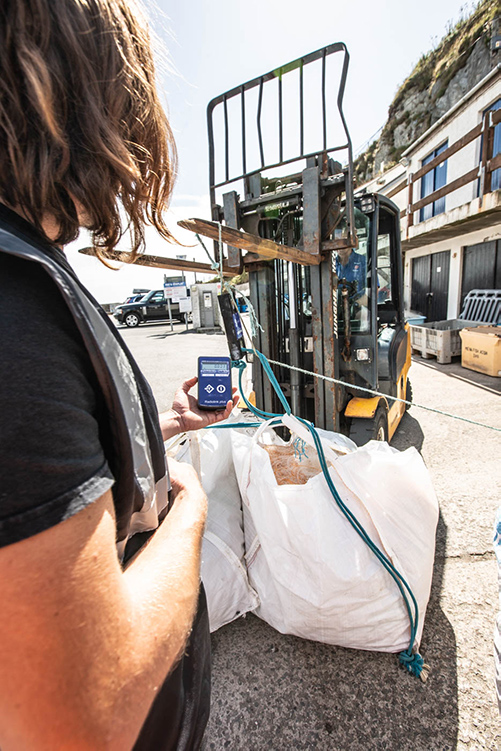
“Once I got the mix working right for rotomolding, I approached Palm and said, ‘Fancy giving this a go?’” Thompson says. Best known in North America for drysuits and technical paddling gear, Palm Equipment also makes Islander, Dagger and Wilderness Systems kayaks for sale throughout Europe. Marketing director Paul Robertson took the call.
“When Rob came to us, he was essentially offering the Holy Grail—a material we could use in the same molds we’re already using, at the same temperatures, and get the same sort of product,” he says.
The company had been experimenting with recycled plastic kayaks for a decade, but those boats were made using fresh off-cuts from new plastic. Thompson proposed they mold kayaks from material that had been lost at sea for years, sometimes decades.
When the first 20-kilo bag of recycled plastic arrived, Robertson poured it into a Dagger RPM mold. Then he took the upcycled classic to the river, bashing ends in shallow wave holes, bouncing down manky rapids and hucking the odd waterfall. Long before the boat finally succumbed to the abuse, Robertson was convinced.
The recycled polyethylene worked, and while Robertson wouldn’t recommend it for a state-of-the-art creek boat, it was perfect for the Islander line of recreational kayaks. The company’s Paradise single-seater and Paradise II double were the world’s first marine recycled kayaks when they debuted in January 2019. This season, Islander plans to make two more recycled models available, the Calypso and Fiesta.
Thompson has given some kayaks to beach cleanup groups, while others have been sold online and through Islander’s network of retailers. Many go to liveries interested in putting their environmental credentials front-and-center, Robertson says. “We sent boats to a livery in Spain that allows you to take a kayak out free of charge, providing you come back with a bag full of rubbish.”
Thompson aims to sell about 250 recycled marine kayaks this year, funneling the modest profits back into his fledgling organization. Last year the group removed approximately 130,000 pounds of plastic from the ocean and is on track to double the haul this year. The material has been reborn as all manner of things, including the stages for the Glastonbury Music Festival. Only a fraction makes its way into kayaks.
The kayaks are available only in flat black, due to the unique formulation and UV protection additives used in the recycled plastic. The sit-on-tops start at $555 USD and can currently be shipped anywhere in the world—except North America and China, due to licensing agreements. This may soon change as Thompson is in talks now with a U.S.-based manufacturer to bring the recycling process stateside.
Rob Thompson is cleaning up the ocean, one kayak at a time—literally. | Photo: Courtesy Odyssey Innovations



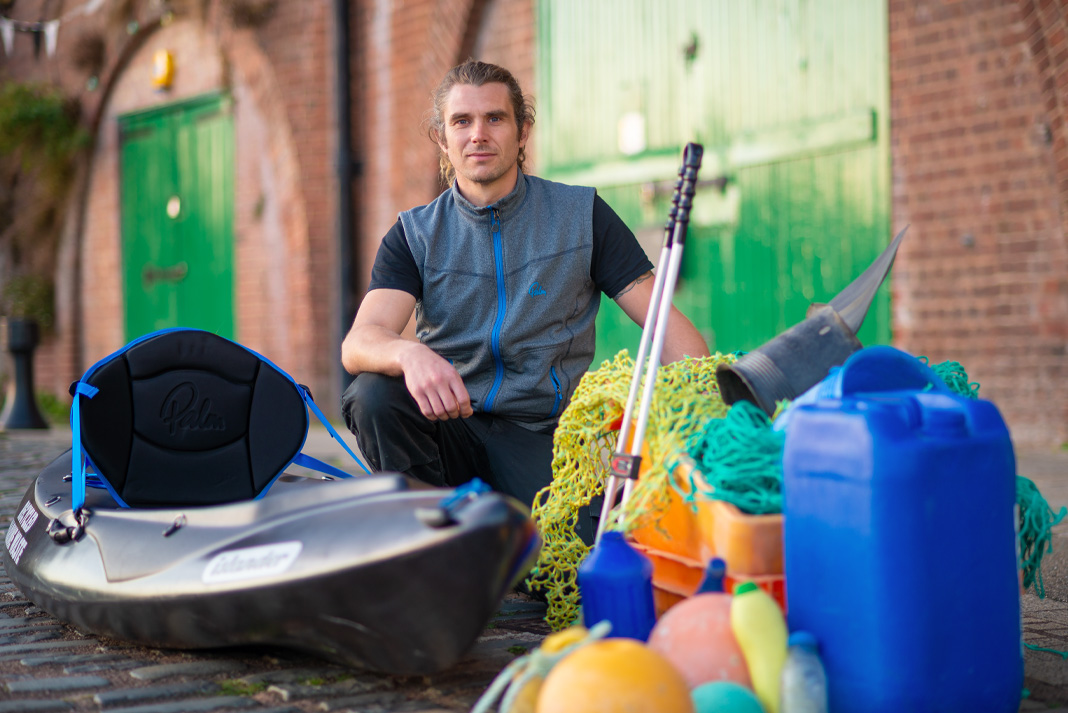
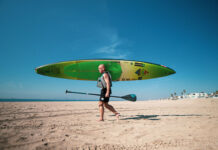
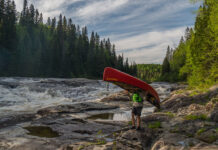

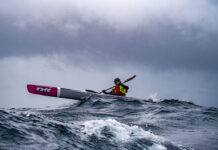
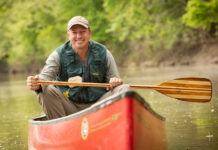

“Only a fraction makes its way into kayaks.” It would be nice to know just what is the percentage of recovered plastic waste is actually usable for making kayaks, how much for construction, park benches, etc, and how much is useless. I fear stories like this will take on lives of their own and most folks will ignore the statistics.
Hi i love to buy one of the Marine Plastic Recycled Kayak!! Sign Me up because I love to save the Ocean from Plastic Waste, hope you ship to Canada!!! Brent Gordon Sea Kayaker from Windsor Ontario Can.